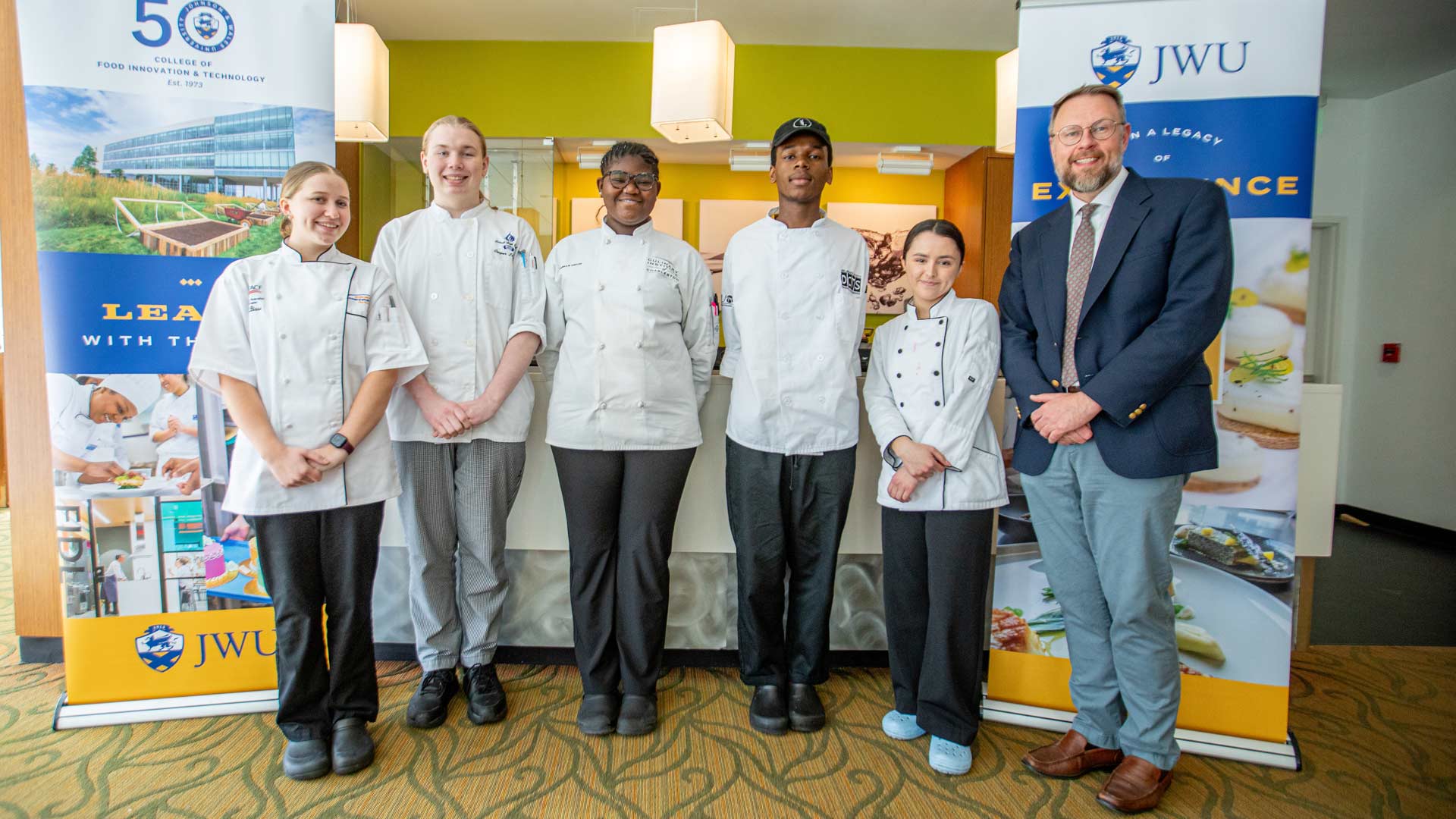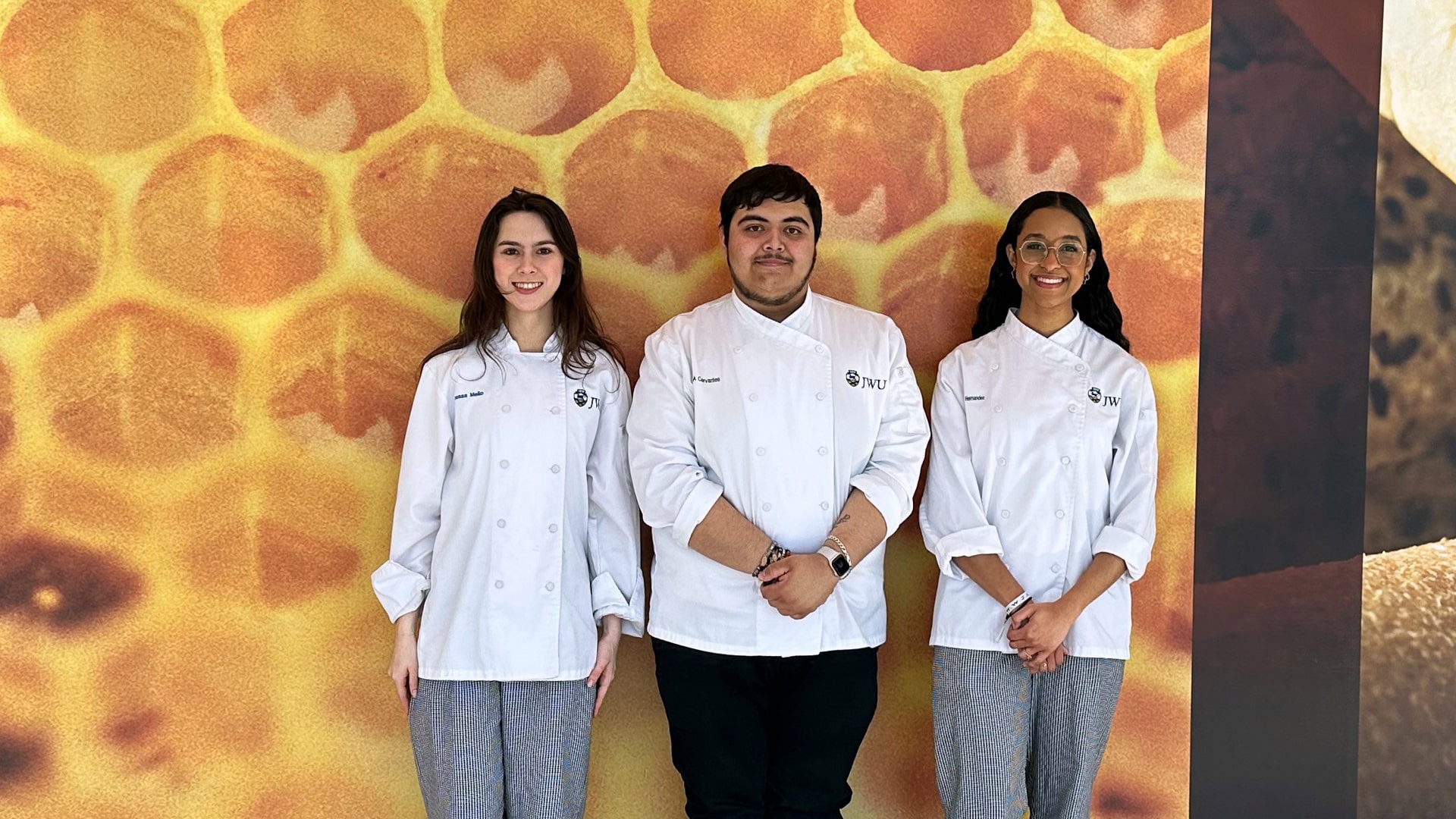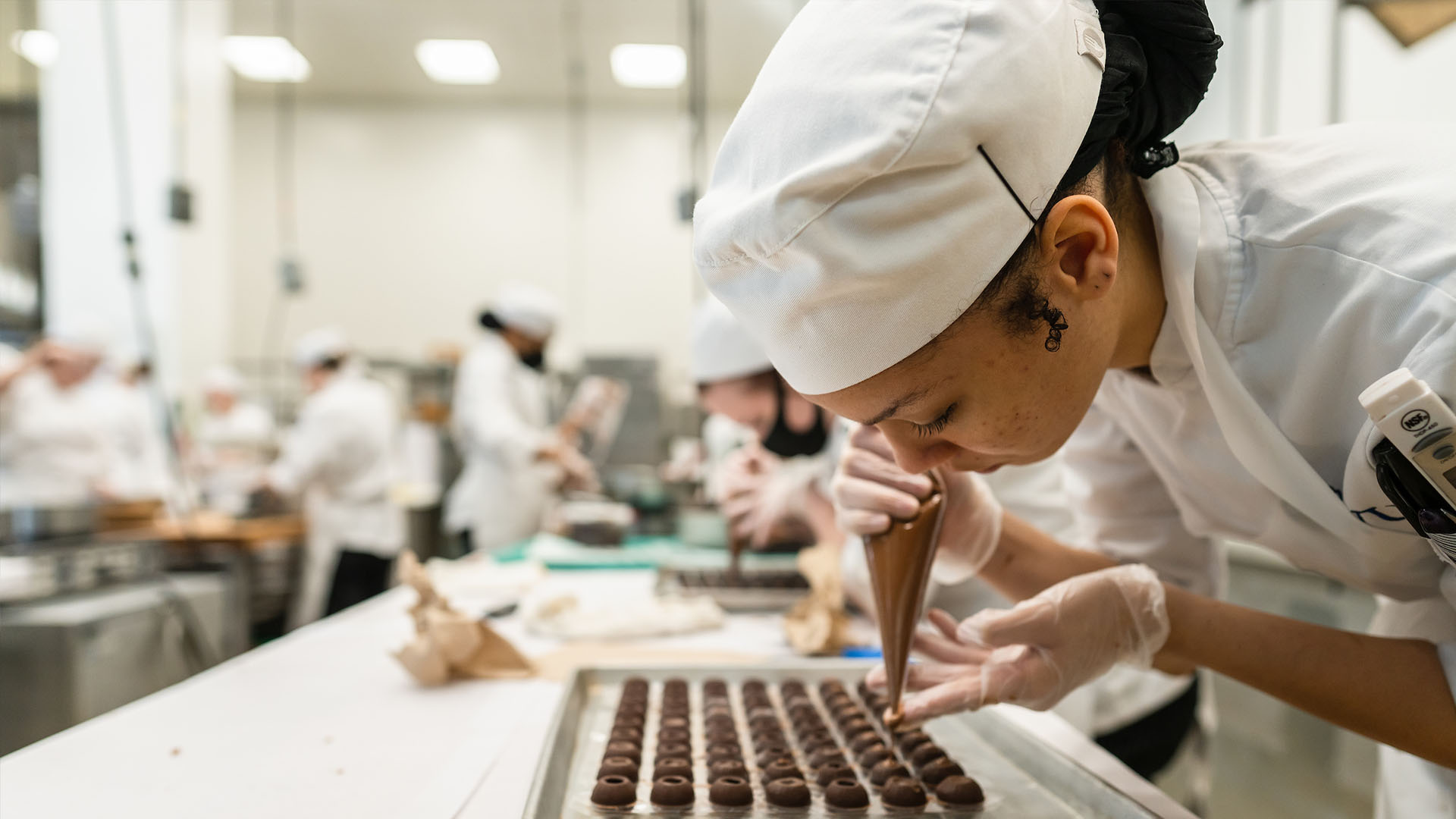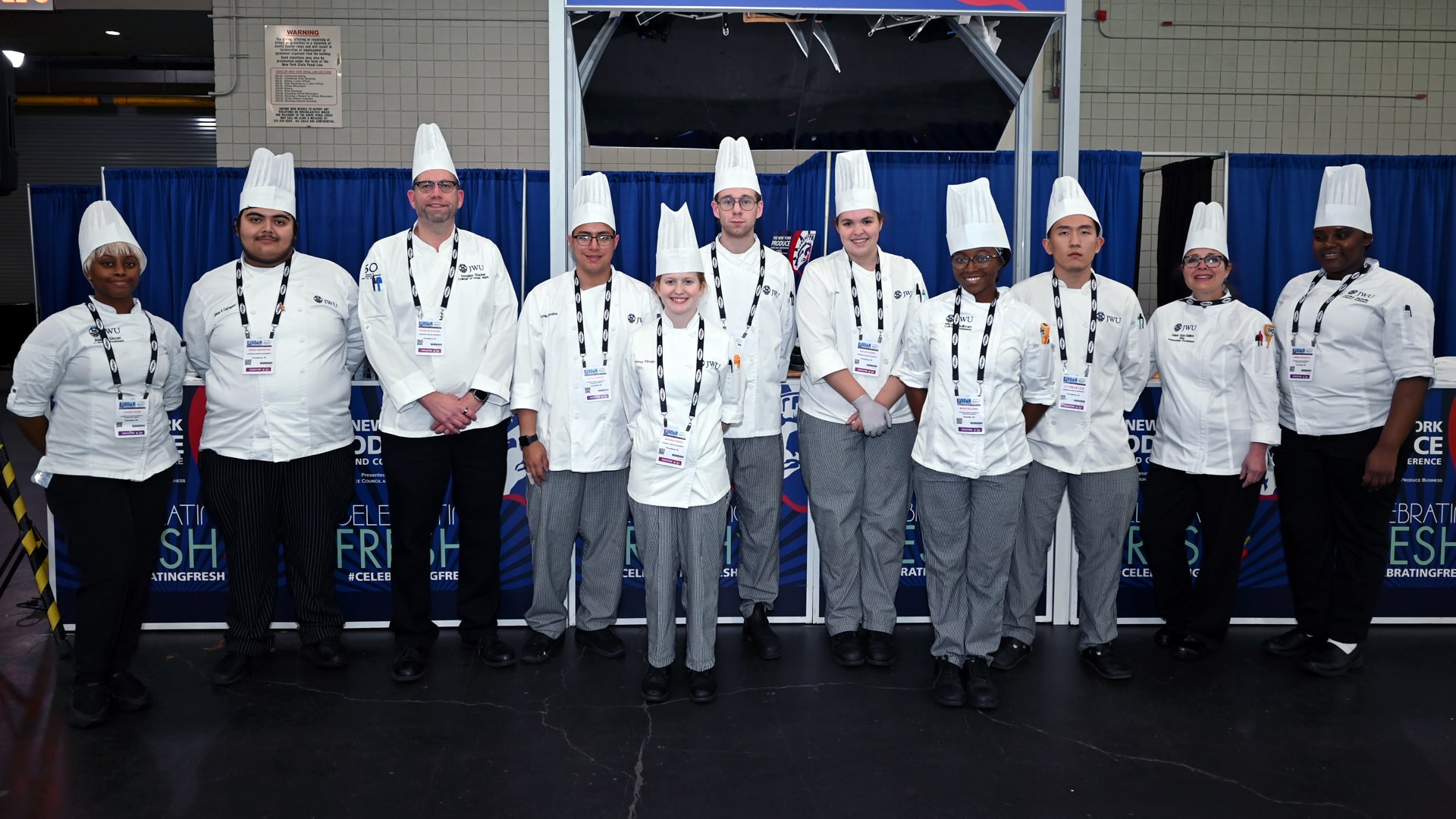Fueling the Future: Exploring Food Science
Comments provided by: Robert Lothrop, Ph.D., Applied Food Science, College of Hospitality, Johnson & Wales University, Charlotte Campus
Over the years, consumers have chosen to be better informed when it comes to what they eat. Consumers want to know where and how something was grown or processed, if it’s “healthy”, etc. Some consumers read food labels and are cautious about what they purchase and choose to consume while others are persuaded by savvy marketers to buy based on the packaging and messaging. And then there are those that eat what they want and assume genetics will take over good or bad whatever will be will be.
Wherever preferences lie when it comes to food choice, most consumers have not given much thought to food science. Would they be surprised to find food and beverage products lining the aisles in supermarkets have been directly influenced by a food scientist?
Food scientists in test kitchens across the globe are helping consumers make thoughtful decisions on what to consume. They assess the demands of their target market and help make a particular food healthier, tastier or more satisfying by using just the right ingredients to meet consumer needs and desires.
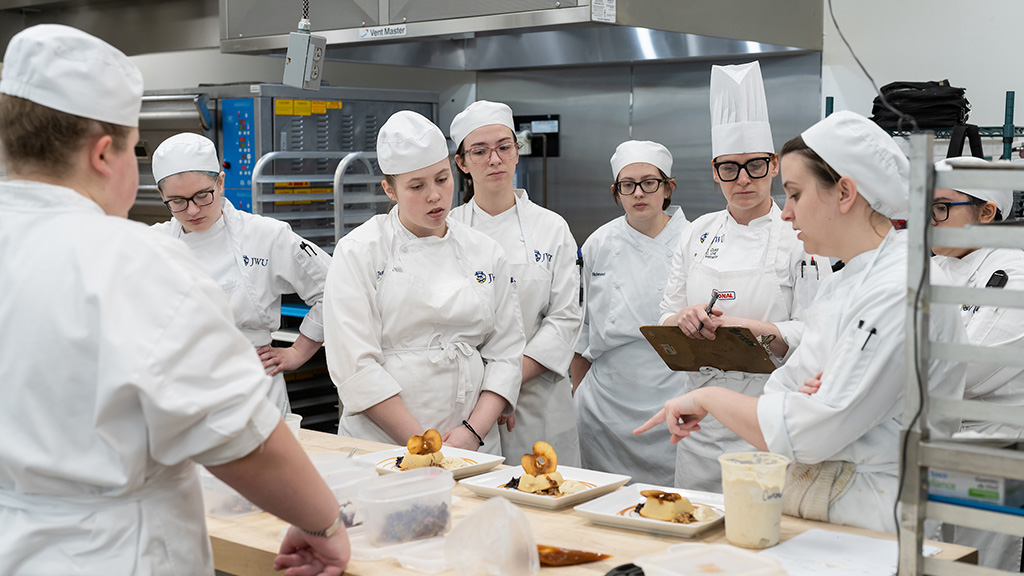
Food Science Studies Food; Ensures Quality and Safety
Food science is a discipline that studies the physical, microbial and chemical makeup of food to create and maintain a wholesome food supply. Food scientists strive to develop and improve food products as well as the process of manufacturing food products to ensure their safety and nutritional value to the final consumer.
One of the many components of the food science bachelor’s degree at Johnson & Wales is a course on food processing. In this class students learn about all aspects of food processing as well as tour various food manufacturing plants in the area. One example of active learning integrated into the curriculum is learning about the different methods of fruit pealing. For thin skinned fruits such as peaches, pears, etc. those are chemically peeled with sodium hydroxide prior to canning or further processing. The students learn the methods and can practice the technique in the university’s chemistry lab.
And in another assignment Johnson & Wales students are challenged to assess a nationally recognized product and employ reverse engineering to replicate it as a store branded product.
Johnson & Wales provides small classes and real-life simulations to assure food science students are experiencing practical scenarios mirroring those in their future careers.
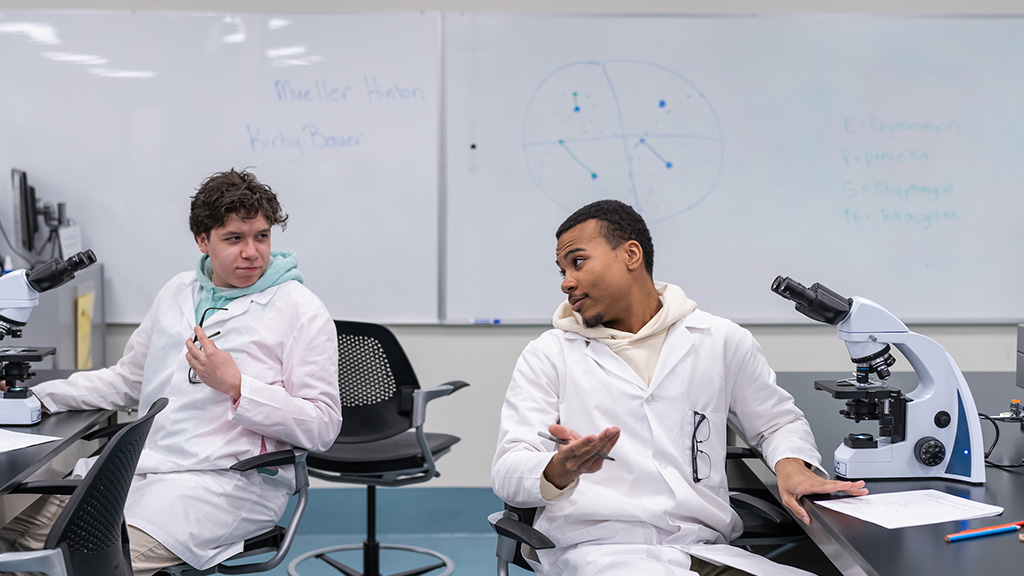
Current Trends in Food Science
Some trends in food science seem to be staples such as convenience, foods for health concerns, etc. According to the Institute of Food Technologists, food trends are predicted to focus on single serve and convenience products, sweet and spicy flavors, use of black garlic and ponzu, botanical components in beverages, locally sourced produce products, and foods catering to specific diets. For example, Keto (low carbohydrate, high fat content) food products have entered the marketplace with great success.
Each year Johnson & Wales food science faculty and the university’s experiential education and career services department assist students in coordinating internships and career opportunities with food producing companies across the country. In their various employment roles, JWU students and alum are tasked with everything from product research & development, food quality assurance, food manufacturing and food microbiology. We have successful graduates in many food manufacturing facilities across the U.S. in roles such as food scientists, food technologists, food quality assurance supervisors, research scientists and food microbiologists.
Food Science has Changed; Consumers Expect More
As technology and research changes, so does the approach to food product development and safety. Today, there is a faster completion time from development to release into the marketplace. Additionally, food scientists are using some culinary principles in the flavor development of products making them more appetizing and appealing to consumers.
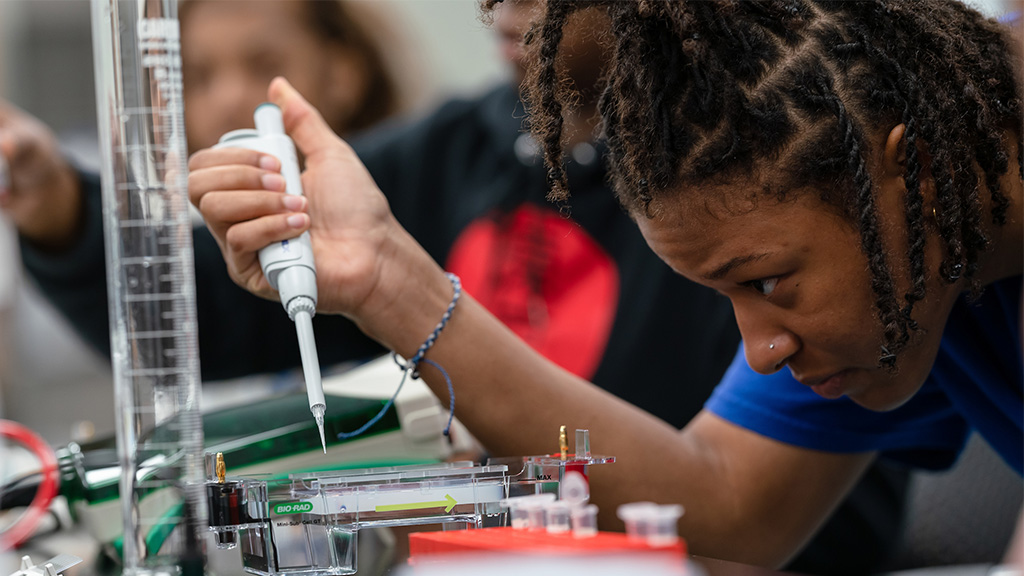
Innovation in Product Development
Products are developed with marketing teams analyzing trends, buying data, consumer dietary needs, etc. Each company specializes in a specific area of the food industry. For instance, a company specializing in sports nutrition will completely focus their research and development efforts on creating products that will appeal to their specific consumer base.
Included in the food science curriculum at Johnson & Wales, students are tasked with designing their own products from creation to production incorporating food chemistry, food microbiology, analytical testing methods and consumer sensory evaluation.
One such task recently included students being required to incorporate soy pulp, a typically wasted product, and include it in a new product to enhance its value. Products ranged from cornbread to scones to pasta demonstrating creativity and inventiveness.
Sustainability and Waste Reduction
Food manufacturers across the country maximize the use of edible waste products by finding alternative applications, etc. This area continues to evolve as technology and new product concepts lend themselves to finding new and innovative ways of minimizing waste.
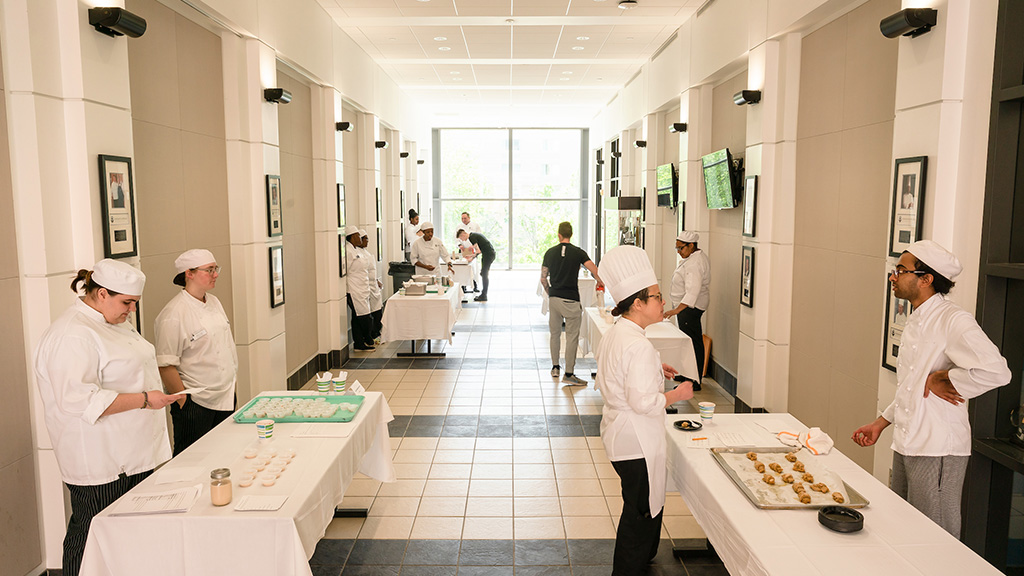
This year food science classes at Johnson & Wales have been asked by ACME Smoked Fish out of Wilmington, NC to design products using salmon trim to make another product. Students will have the opportunity to present their ideas to Acme executives in a simulation forum later this spring.
Johnson & Wales: Elevating Expectations
The Johnson & Wales food science program distinguishes itself by requiring students to have completed a two-year degree in either culinary arts or bakery and pastry students prior to applying to the two-year food science program. This educational blend affords JWU students the benefit of learning how to meet the product and scientific needs of a company. In addition, the food science curriculum balances lectures with hands on labs in all relevant areas of the industry including chemistry, food microbiology, sensory science, fermentation science and food research & development. Together, this program ensures that food science majors are well prepared and equipped with the skills and acumen necessary to succeed in the workforce, whether as interns or full-time employees.
